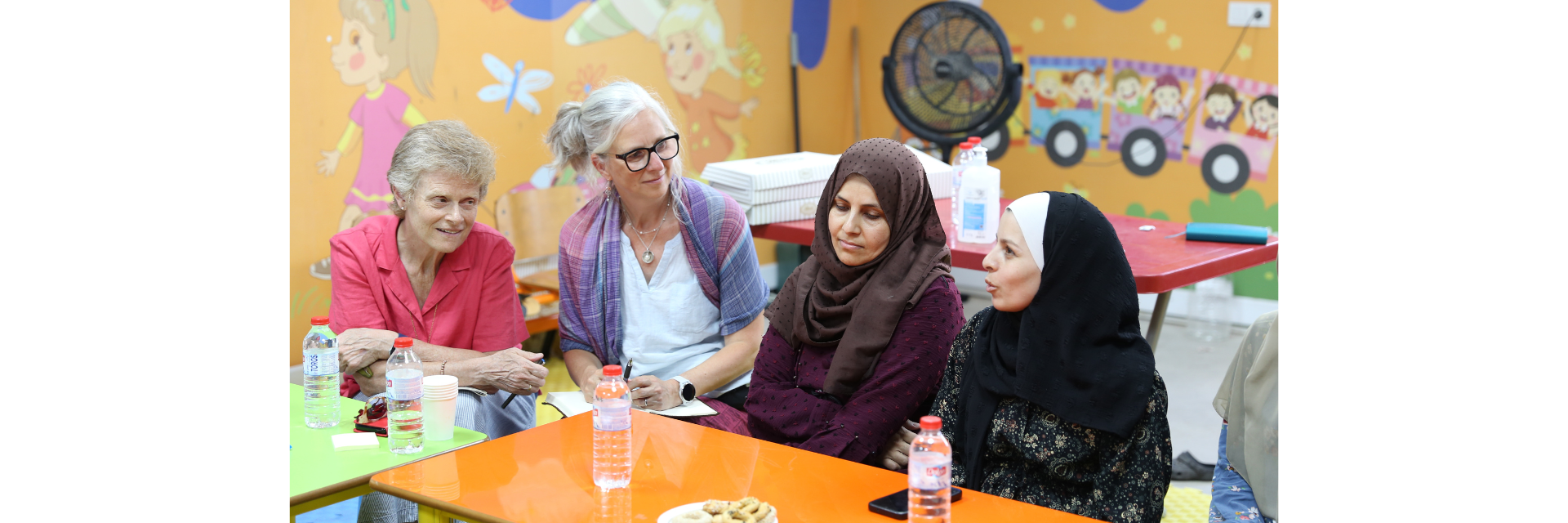
STAFF REFLECTION: Rubble and Resilience
By Bren Melles, Humanitarian Program Specialist, Humanitarian Coalition
Listening to people tell their earthquake stories on a recent monitoring and evaluation trip to Türkiye and Syria brings the harsh reality of a humanitarian crisis into perspective. They told me of being woken from deep sleep by the violent shaking. The noise of things crashing out of cupboards. The dust. The abject fear of believing this is the end. And then, when those seemingly endless 85 seconds of the first earthquake were over, facing the thousands of aftershocks and the reality of friends and family dead, and houses, schools, and livelihoods destroyed.
The February 2023 earthquakes was one of the worst natural disasters in modern history. More than 55,000 people were killed. Even now, people are still shaken.
When the earthquakes hit, the Humanitarian Coalition leapt into action. All 12 of our members had active programming in Syria or Türkiye or both, so we were well positioned to respond immediately. Within hours, we launched a joint appeal to raise funds and coordinate programming. Canadians responded with generosity. Together, we raised more than $25 million, including a $10 million match from the Government of Canada.
Those donations were put to good work. I visited CARE's earthquake response in Türkiye's Hatay province, where I saw a line of rebuilt market shops that had collapsed in the ancient city of Antakya and a reconstructed recreation centre gym for kids in Iskenderun. This work not only helps rebuild structures, it also helps rebuild lives. Children now have a place to play again.
The earthquakes' impact is still vivid. We passed through fields of rubble from collapsed buildings. In Hatay Province, 650,000 people are still living in temporary camps -- in small, metal-sided containers. We met with a dozen Syrian refugee women in one of these container camps, gathering in a communal safe space created by non-governmental organizations including Humanitarian Coalition members CARE and World Vision. CARE staff use this space to provide awareness sessions on gender-based violence. The women shared their frustration with not having opportunities to build a comfortable life in Türkiye nor being able to safely return to their homes in Syria. And yet, their strength and determination still shone.
Earthquakes are not deterred by borders, and the impact was just as grave in neighbouring northwest Syria. I visited CARE's response in Zoghara Camp, home to 12,000 internally displaced Syrians (half are children) who fled their homes because of armed conflict. Many have been in the camp for more than a decade and there is little hope of leaving. Donations to the Humanitarian Coalition meant that CARE could provide immediate support after the earthquakes, distributing dignity kits containing toothbrushes, underwear, soap, sanitary pads, washing powder, blankets, flashlights, towels, and headscarves. Humanitarian Coalition funds also supported mental health and psychosocial support activities for the most vulnerable earthquake-affected people in the camp.
The two universal takeaways from the conversations I had while visiting programs in Türkiye and Syria were great resilience and a determination to rebuild. With the generosity of our supporters, the Government of Canada matching fund, and the exceptional programming response of the Humanitarian Coalition's members, donations are making a difference in the lives of thousands of people.
Photo caption: A focus group discussion with Syrian women who live in a refugee camp in Hatay Province, southern Türkiye, who were sharing their experience of the earthquakes and its impact with Bren Melles, Humanitarian Program Specialist, Humanitarian Coalition (second from left), and Barbara Grantham, President and CEO of CARE Canada and Humanitarian Coalition Board Member and Co-Chair (far left).